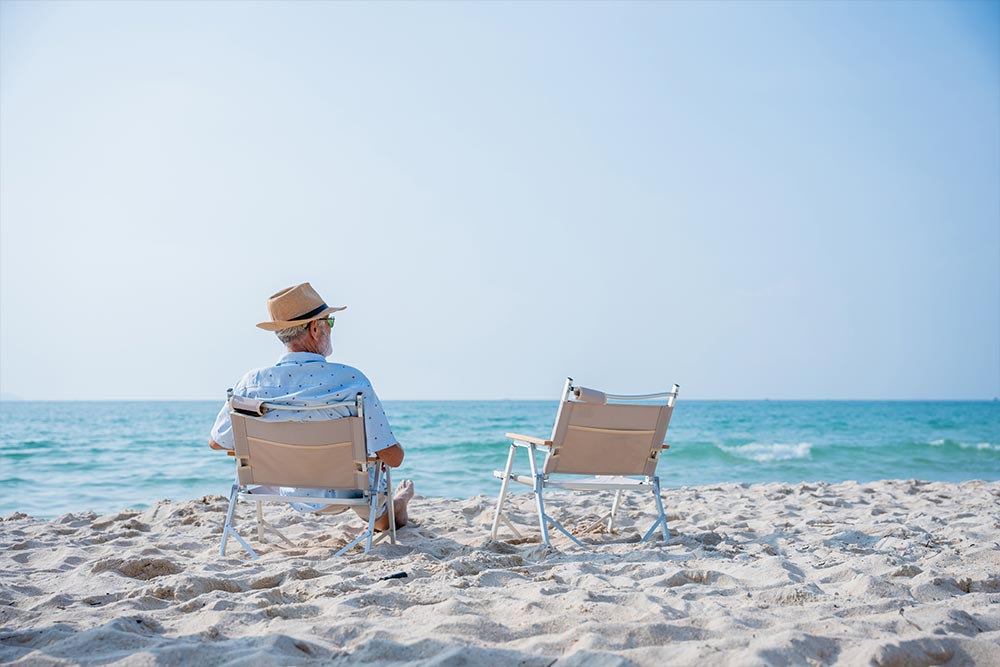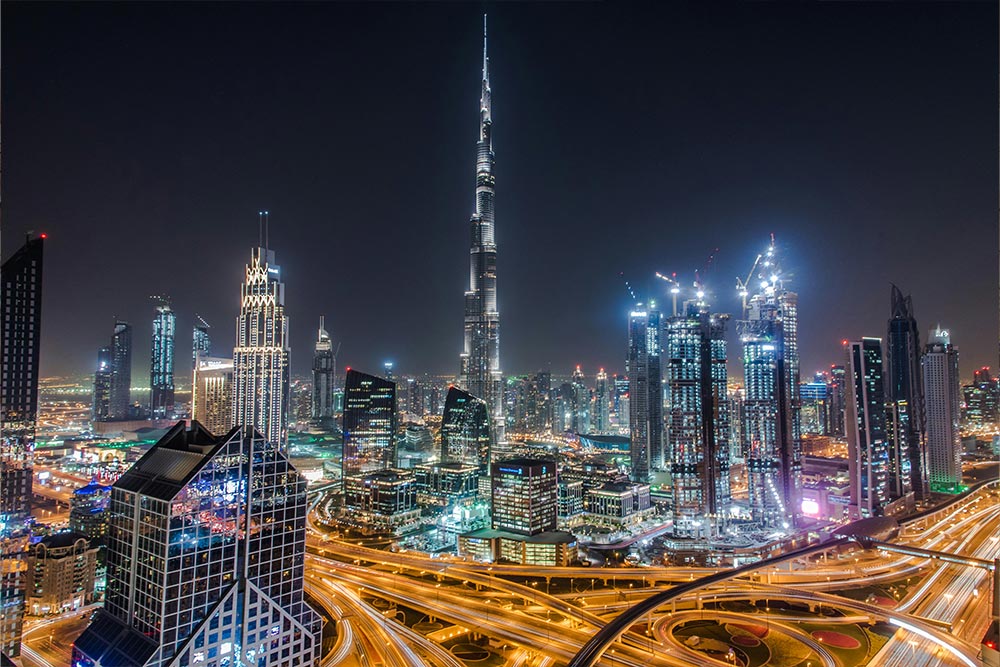UAE is a popular destination for foreigners, with most of the population being expatriates. Many dream of working and retiring in the Emirates. However, the UAE retirement process requires conscious planning and legal and financial considerations.
If you want a stress-free life after retirement, this guide is for you. It contains everything expats should know about retirement in the UAE so you can plan accordingly.
- Legal and Residency Requirements
- Housing and Living Costs
- Healthcare Facilities
- Tax Considerations
- Estate Planning
- Integration and Community
- Safety and Security
- FAQs

Legal and Residency Requirements
Understanding the visa and residency options is crucial for expats considering retirement in the UAE. The UAE offers a retirement visa specifically for those aged 55 and above, allowing expats to stay long-term and enjoy their retirement in a vibrant and secure environment.
A retirement visa is a special permit for facilitating retirees in the UAE without working in UAE. It can be obtained by fulfilling financial requirements via proof of savings and is valid for five years.
Here are some conditions that make one eligible to apply for a retirement visa.
- To have working experience of at least 15 years inside or outside the UAE or be at least 55 years old at the time of retirement
- To have financial savings/property of AED 1 million or have a source of income of AED 15,000/month
Necessary Documentation and Application Process
To apply for a retirement visa in Dubai or other Emirates, you need to prepare the following documents:
- A valid passport with at least six months of validity
- Proof of income or financial stability (such as pension statements or bank statements)
- Health insurance coverage valid in the UAE
- Proof of accommodation (rental agreement or property ownership documents)
The application process involves:
- Submitting these documents to the UAE immigration authorities, either online or at a physical application centre.
- Seeking assistance from a local legal advisor or immigration consultant to ensure a smooth process.
Housing and Living Costs
Retirees in the UAE have a variety of housing options to choose from, ranging from luxurious villas to modern apartments.
Living in a villa offers privacy, a spacious layout, and exclusive amenities such as private gardens, swimming pools, and ample living space. On the other hand, apartments offer amenities such as gyms, communal pools, and security services, which can be very appealing to retirees.
Buying vs. Renting Property in the UAE
Buying a property in Dubai, Abu Dhabi or other Emirates can be a good investment, providing stability and potential appreciation in value. However, it also involves significant upfront costs and ongoing maintenance. Renting in UAE offers more flexibility, lower costs, and less responsibility for property upkeep.

Popular Areas and Communities for Expat Retirees
Dubai’s Palm Jumeirah offers luxurious waterfront living with access to top-notch dining, shopping, and leisure facilities. The Dubai Marina area is another favourite, known for its vibrant atmosphere and excellent transport links.
For a quieter and more relaxed environment, communities like Arabian Ranches and The Springs offer green spaces, golf courses, and a more suburban feel.
In Abu Dhabi, areas such as Saadiyat Island and Al Reem Island provide beautiful coastal views, cultural attractions, and a range of housing options.
Healthcare Facilities
Residents, including retirees, have easy access to various medical facilities and services. Major cities like Dubai and Abu Dhabi have numerous hospitals and clinics providing comprehensive care, from general practice to specialized treatments.
Pharmacies are readily available and telemedicine services offer convenient at-home consultations.
Health Insurance Options for Retirees
Healthcare in UAE is of prime importance. That is why, it is mandatory for expats to have health insurance in the UAE through various plans available to suit different needs and budgets. Retirees can choose from basic to comprehensive plans, ensuring coverage for essential services, emergency care, and chronic disease management.
UAE law mandates that all residents and expatriates have a valid health insurance policy. Alliance and Abu Dhabi National Insurance Company (ADNIC) health insurance policy meets retirement visa requirements.
Required Documents
The following are the required documents for obtaining health insurance in UAE:
- Valid Residence Visa
- Emirates ID
- Passport
Tax Considerations
The UAE does not impose income tax on residents’ or expatriates’ salaries, pensions, or other retirement income, making it an attractive destination for retirees.
If you are a citizen of a country with a tax treaty with the UAE, you can also avoid double taxation. The Ministry is working on expanding its Double Taxation Agreements (DTA) and Bilateral Investments Treaties (BIT) network to avoid these inconveniences.
You should consult a taxation professional to clarify your financial obligations in the UAE and your home country.

Banking and Financial Services in the UAE
Retirees can choose from various banking options, including local and international banks that provide savings accounts, investment opportunities, and wealth management services.
There are many banks for expats in the UAE, like Emirates NBD, Abu Dhabi Commercial Bank (ADCB) and Dubai Islamic Bank, offering expat-friendly services. These services include multi-currency accounts and online banking, making it easy to manage finances from abroad.
It’d be a good idea to consult financial advisors specialising in expat finances to optimize investment and savings strategies.
Estate Planning
Planning about assets is also crucial for expats nearing their retirement in the UAE. If left unattended, your property might be subject to Sharia Law.
Wills, Inheritance Laws, and Asset Protection
Drafting a will recognized by UAE authorities is crucial for expats. Understanding inheritance laws and setting up asset protection mechanisms, like trusts, can safeguard your assets and ensure they go to your intended beneficiaries.
The testator and two Muslim witnesses must sign a will written in Arabic and not be beneficiaries. They must be sound minds and free from legal disabilities. Sharia law dictates different estate shares among heirs, determined by their relationship to the deceased.
For instance, a daughter receives half of a son’s estate, while the remaining half is divided among male heirs. Any assets not included in the will are distributed under Sharia law.
Legal Assistance and Resources
Seeking legal assistance from professionals experienced in UAE laws can help you navigate the complexities of estate planning. Numerous resources and legal firms specialize in expat estate planning, providing guidance and peace of mind.
DIFC Courts and the Abu Dhabi Judicial Department (ADJD) provide thorough legal assistance to expats regarding estate planning and will.
Documenting and registering a will as an expat in the UAE includes the following steps:
- Collaborate with a legal professional to draft a precise, clear, and legally sound will.
- Choose the appropriate UAE court or authority for will registration.
- Register the will to ensure its recognition and enforceability in the UAE.
- Clearly define beneficiaries and allocate assets.
- Appoint an executor capable of carrying out the instructions in the will.
- Regularly review and update the will to reflect changing circumstances.
- Keep copies of the will secure and provide location information for easy access.
Integration and Community
Integrating into the local community involves participating in neighbourhood events and being open to new experiences. Engaging with locals and fellow expats can help you build a supportive network.
Social Clubs and Organizations for Expats
Joining social clubs and organizations tailored for expats can ease the transition. That’s because these groups offer various activities and events that help newcomers meet people and establish friendships.
Moreover, understanding basic Arabic phrases and cultural norms can significantly enhance your experience in the UAE. Respect for local customs and traditions fosters better relationships with the local community.
Safety and Security
The UAE is known for its high safety and security standards. The country has low crime rates, and the government prioritizes public safety, making it a secure place for retirees.
Emergency Services and Support
Emergency services in the UAE are efficient and widely accessible. Knowing the contact details for local emergency services and nearby hospitals in UAE is essential for a quick response in an emergency.
- Police Helpline Number: 999
- Ambulance Helpline Number: 998
- Fire Department (Civil Defence) Number: 997
Simple precautions, such as securing your home and being aware of your surroundings, contribute to personal and property safety. The UAE’s robust security measures add an extra layer of protection for residents.

FAQs
The retirement age for foreigners is generally above 55, but according to some migration laws, it can also be after at least 15 years of service.
No, as an expat, you aren’t eligible to receive pensions from the UAE government.
You can apply for the Retirement Visa if you have relevant working experience and required financial assets. The visa is issued for five years and can be renewed as well.
According to an estimation, you must multiply your cost of living by 25x, which will be required as your retirement savings.
The guide above contains all you need to know about retiring in UAE as an expat. By planning and involving qualified professionals, you can avoid stress and make retirement an enjoyable experience.
So, check out Property Finder blogs today and find the best property solutions for investment!